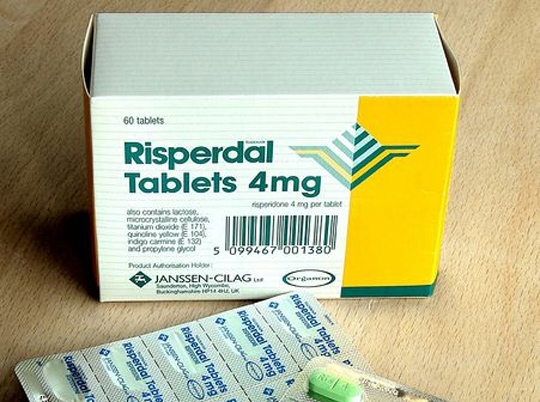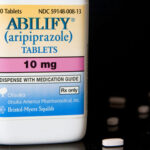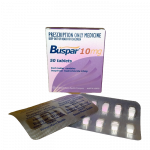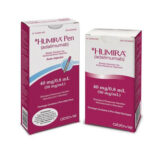Risperidone (Risperdal): Uses, Benefits, How it works, Side Effects

What Is Risperidone (Risperdal) And What Does It Treat?
Risperidone more commonly known by the brand name Risperdal is a medication used to treat the symptoms of schizophrenia (a mental illness that causes disturbed or unusual thinking, loss of interest in life, and strong or inappropriate emotions) in adults and teenagers 13 years of age and older. It is also used to treat episodes of mania (frenzied, abnormally excited, or irritated mood) or mixed episodes (symptoms of mania and depression that happen together) in adults and in teenagers and children 10 years of age and older with bipolar disorder (manic depressive disorder; a disease that causes episodes of depression, episodes of mania, and other abnormal moods).
Risperidone (Risperdal) is also used to treat behavior problems such as aggression, self-injury, and sudden mood changes in teenagers and children 5 to 16 years of age who have autism (a condition that causes repetitive behavior, difficulty interacting with others, and problems with communication).
Risperidone (Risperdal) may also be helpful when prescribed “off-label” for adjunctive treatment of major depression disorder (risperidone is used in addition to an antidepressant), delusional parasitosis, post-traumatic stress disorder (PTSD), Tourette syndrome, and other mental health conditions. “Off-label” means that it has not been approved by the Food and Drug Administration for this condition. Your mental health provider should justify his or her thinking in recommending an “off-label” treatment. They should be clear about the limits of the research around that medication and if there are any other options.
How Risperidone (Risperdal) works
Risperidone (Risperdal) is in a class of medications called atypical antipsychotics. It works by changing the activity of certain natural substances in the brain. The primary action of Risperidone (Risperdal) (Risperdal) is to decrease dopaminergic and serotonergic pathway activity in the brain, therefore decreasing symptoms of schizophrenia and mood disorders. Risperidone (Risperdal) has a high binding affinity for serotonergic 5-HT2A receptors when compared to dopaminergic D2 receptors in the brain, it rebalances dopamine and serotonin to improve thinking, mood, and behavior.
How Long Does It Take For Risperidone (Risperdal) To Work?
It is very important to tell your doctor how you feel things are going during the first few weeks after you start taking risperidone. It will probably take several weeks to see big enough changes in your symptoms to decide if risperidone is the right medication for you. If you take Risperdal Consta® (risperidone long-acting injection), it will take about three weeks before risperidone is fully absorbed and at an adequate level to begin treating your symptoms. After starting Risperdal Consta® (risperidone long-acting injection) for the first time, or re-starting it after a time of no medication, it is important to continue taking risperidone tablets for at least three weeks. If you take Perseris® (risperidone long-acting injection), it is not recommended to take oral risperidone after the first injection.
Antipsychotic treatment is generally needed lifelong for persons with schizophrenia. Your doctor can best discuss the duration of treatment you need based on your symptoms and illness.
• Hallucinations, disorganized thinking, and delusions may improve in the first 1-2 weeks
• Sometimes these symptoms do not completely go away
• Motivation and desire to be around other people can take at least 1-2 weeks to improve
• Symptoms continue to get better the longer you take risperidone
• It may take 2-3 months before you get the full benefit of risperidone
What Is The Most Important Information I Should Know About Risperidone (Risperdal)?
Schizophrenia requires long-term treatment. Do not stop taking risperidone, even when you feel better.
With input from you, your health care provider will assess how long you will need to take the medicine.
Missing doses of risperidone may increase your risk for a relapse in your symptoms.
Do not stop taking risperidone or change your dose without talking to your healthcare provider first.
For risperidone to work properly, the tablet form should be taken every day as ordered by your healthcare provider. One of the long-acting injectable forms, known as Risperdal Consta®, should be received every 2 weeks as ordered by your healthcare provider. The other long-acting injectable form, known as Perseris®, should be received every month. Both of the long-acting injections are the same medication as in the tablet form.
What Should I Discuss With My Healthcare Provider Before Taking Risperidone (Risperdal)?
• Symptoms of your condition that bother you the most
• If you have thoughts of suicide or harming yourself
• Medications you have taken in the past for your condition, whether they were effective or caused any adverse effects
• If you ever had muscle stiffness, shaking, tardive dyskinesia, neuroleptic malignant syndrome, or weight gain caused by a medication
• If you experience side effects from your medications, discuss them with your provider. Some side effects may pass with time, but others may require changes in the medication.
• Any psychiatric or medical problems you have, such as heart rhythm problems, long QT syndrome, heart attacks, diabetes, high cholesterol, or seizures
• If you have a family history of diabetes or heart disease
• All other medications you are currently taking (including over the counter products, herbal and nutritional supplements) and any medication allergies you have
• Other non-medication treatments you are receiving, such as talk therapy or substance abuse treatment. Your provider can explain how these different treatments work with the medication.
• If you are pregnant, plan to become pregnant, or are breast-feeding
• If you smoke, drink alcohol, or use illegal drugs
How Should I Take Risperidone (Risperdal)?
Risperidone (Risperdal) tablets and solution are usually taken 1 or 2 times per day with or without food. Typically, patients begin at a low dose of medicine and the dose is increased slowly over several weeks.
The oral dose usually ranges from 1mg to 6 mg. The dose of the injection usually ranges from 12.5 mg to 50 mg. Only your healthcare provider can determine the correct dose for you.
Use a calendar, pillbox, alarm clock, or cell phone alert to help you remember to take your medication. You may also ask a family member or a friend to remind you or check in with you to be sure you are taking your medication.
Risperidone (Risperdal) orally disintegrating tablets must remain in their original packaging. Open the package with clean dry hands before each dose. Do not try to put tablets in a pillbox if you take the orally disintegrating tablets.
Risperidone (Risperdal) orally disintegrating tablets will dissolve in your mouth within seconds and can be swallowed with or without liquid.
Risperidone (Risperdal) liquid should be measured with a dosing spoon or oral syringe, which you can get from your pharmacy.
Risperdal Consta® (risperidone long-acting injection) should be received every 2 weeks. It should be administered by your health care professional through an injection into your upper arm or buttocks area. The medication effects last for approximately 2 weeks. If you are new to taking Risperdal Consta® (risperidone long-acting injection), your health care provider may want you to take the tablet form or risperidone daily for up to 3 weeks.
Perseris® (risperidone long-acting injection) should be received every month. It should be administered by your health care professional through an injection under the skin of your abdominal area. After establishing tolerability with oral risperidone, you may be switched to Perseris® (risperidone long-acting injection). Supplemental oral risperidone is not recommended after receiving your first Perseris® (risperidone long-acting injection) dose. After receiving the injection, you may have a lump for several weeks that will decrease in size over time. It is important that you not rub or massage the injection site and to be aware of the placement of any belts or clothing waistbands.
What Happens If I Miss A Dose Of Risperidone (Risperdal)?
If you miss a dose of risperidone, take it as soon as you remember, unless it is closer to the time of your next dose. Discuss this with your healthcare provider. Do not double your next dose or take more than what is prescribed. If you miss a dose of Risperdal Consta® or Perseris® (risperidone long-acting injections), see your healthcare provider to get your dose as soon as possible.
What Should I Avoid While Taking Risperidone (Risperdal)?
Avoid drinking alcohol or using illegal drugs while you are taking risperidone. They may decrease the benefits (e.g., worsen your confusion) and increase adverse effects (e.g., sedation) of the medication.
What Happens If I Overdose With Risperidone (Risperdal)?
If an overdose occurs, call your doctor or 911. You may need urgent medical care. You may also contact the poison control center at 1-800-222-1222.
A specific treatment to reverse the effects of risperidone does not exist.
Can a pregnant woman take Risperidone (Risperdal)?
If you are planning on becoming pregnant, notify your healthcare provider to best manage your medications. People living with schizophrenia who wish to become pregnant face important decisions. This is a complex decision since untreated schizophrenia has risks to the fetus, as well as the mother. It is important to discuss the risks and benefits of treatment with your doctor and caregivers.
Antipsychotic use during the third trimester of pregnancy has a risk for abnormal muscle movements (extrapyramidal symptoms [EPS]) and/or withdrawal symptoms in newborns following delivery. Symptoms in the newborn may include agitation, feeding disorder, hypertonia, hypotonia, respiratory distress, somnolence, and tremor; these effects may be self-limiting or require hospitalization.
Can a breastfeeding woman take Risperidone (Risperdal)?
Caution is advised with breastfeeding. Doses of up to 6 mg a day have been used during breastfeeding. These doses did not cause side effects or symptoms in a small number of breastfed infants who were exposed to Risperidone (Risperdal).
What Are The Possible Side Effects Of Risperidone (Risperdal)?
Risperidone may cause side effects. Tell your doctor if any of these symptoms are severe or do not go away:
• agitation
• anxiety
• breast enlargement or discharge
• constipation
• decreased sexual ability
• diarrhea
• difficulty falling asleep or staying asleep
• difficulty urinating
• dizziness, feeling unsteady, or having trouble keeping your balance
• dreaming more than usual
• dry mouth
• dry or discolored skin
• heartburn
• increased appetite
• increased saliva
• late or missed menstrual periods
• muscle or joint pain
• nausea
• restlessness
• stomach pain
• vision problems
• vomiting
• weight gain
Some side effects can be serious. If you experience any of the following symptoms, call your doctor immediately:
• confusion
• difficulty breathing or swallowing
• faintness
• falling
• fast or irregular pulse
• fever
• hives
• itching
• muscle stiffness
• painful erection of the penis that lasts for hours
• rash
• seizures
• slow movements or shuffling walk
• sweating
• unusual movements of your face or body that you cannot control
Risperidone (Risperdal) may cause children to gain more weight than expected and for boys and male teenagers to have an increase in the size of their breasts. Talk to your doctor about the risks of giving this medication to your child.
Risperidone (Risperdal) may cause other side effects. Call your doctor if you have any unusual problems while taking this medication.
Is Risperidone (Risperdal) a safe medication?
This medication is safe to use when taken as prescribed. However, Risperidone (Risperdal) may increase the blood levels of a hormone called prolactin. Side effects of increased prolactin levels include females losing their period, production of breast milk, and males losing their sex drive or possibly experiencing erectile problems. Long-term (months or years) of elevated prolactin can lead to osteoporosis or increased risk of bone fractures.
Some people may develop muscle-related side effects while taking risperidone. The technical terms for these are “extrapyramidal symptoms” (EPS) and “tardive dyskinesia” (TD). Symptoms of EPS include restlessness, tremor, and stiffness. TD symptoms include slow or jerky movements that one cannot control, often starting in the mouth with tongue rolling or chewing movements.
Temperature regulation: Impaired core body temperature regulation may occur; caution with strenuous exercise, heat exposure, and dehydration.
Second-generation antipsychotics (SGAs) increase the risk of weight gain, high blood sugar, and high cholesterol. This is also known as metabolic syndrome. Your healthcare provider may ask you for a blood sample to check your cholesterol, blood sugar, and hemoglobin A1c (a measure of blood sugar over time) while you take this medication.
SGAs have been linked with a higher risk of death, strokes, and transient ischemic attacks (TIAs) in elderly people with behavior problems due to dementia.
All antipsychotics have been associated with the risk of sudden cardiac death due to an arrhythmia (irregular heartbeat). To minimize this risk, antipsychotic medications should be used in the smallest effective dose when the benefits outweigh the risks. Your doctor may order an EKG to monitor for an irregular heartbeat.
Neuroleptic malignant syndrome is a rare, life-threatening adverse effect of antipsychotics that occurs in <1% of patients. Symptoms include confusion, fever, extreme muscle stiffness, and sweating. If any of these symptoms occur, contact your healthcare provider immediately.
All antipsychotics can cause sedation, dizziness, or orthostatic hypotension (a drop in blood pressure when standing up from sitting or lying down). These side effects may lead to falls which could cause bone fractures or other injuries. This risk is higher for people with conditions or other medications that could worsen these effects. If falls or any of these symptoms occur, contact your healthcare provider.
Are There Any Risks For Taking Risperidone (Risperdal) For Long Periods Of Time?
Tardive dyskinesia (TD) is a side effect that develops with prolonged use of antipsychotics. Medications such as risperidone have been shown to have a lower risk of TD compared to older antipsychotics, such as Haldol® (haloperidol). If you develop symptoms of TD, such as grimacing, sucking, smacking of lips, or other movements that you cannot control, contact your healthcare provider immediately. All patients taking either first or second-generation antipsychotics should have an Abnormal Involuntary Movement Scale (AIMS) completed regularly by their healthcare provider to monitor for TD.
Second-generation antipsychotics (SGAs) increase the risk of diabetes, weight gain, high cholesterol, and high triglycerides. (See “Serious Side Effects” section for monitoring recommendations).
What Other Medications May Interact With Risperidone (Risperdal)?
Risperidone (Risperdal) may block the effects of agents used to treat Parkinson’s disease such as levodopa/carbidopa (Sinemet®), bromocriptine, pramipexole (Mirapex®), ropinirole (Requip®), and others.
Risperidone (Risperdal) may lower your blood pressure. Medications used to lower blood pressure may increase this effect and increase your risk of falling. Propranolol (Inderal®) is an example of this type of medication.
The following medications may increase the levels and effects of risperidone: divalproex sodium (Depakote®), fluoxetine (Prozac®), paroxetine (Paxil®), and verapamil (Calan®).
The following medications may decrease the levels and effects of risperidone: carbamazepine (Tegretol®, Equetro®), phenytoin (Dilantin®), phenobarbital, or rifampin (Rifadin®).





